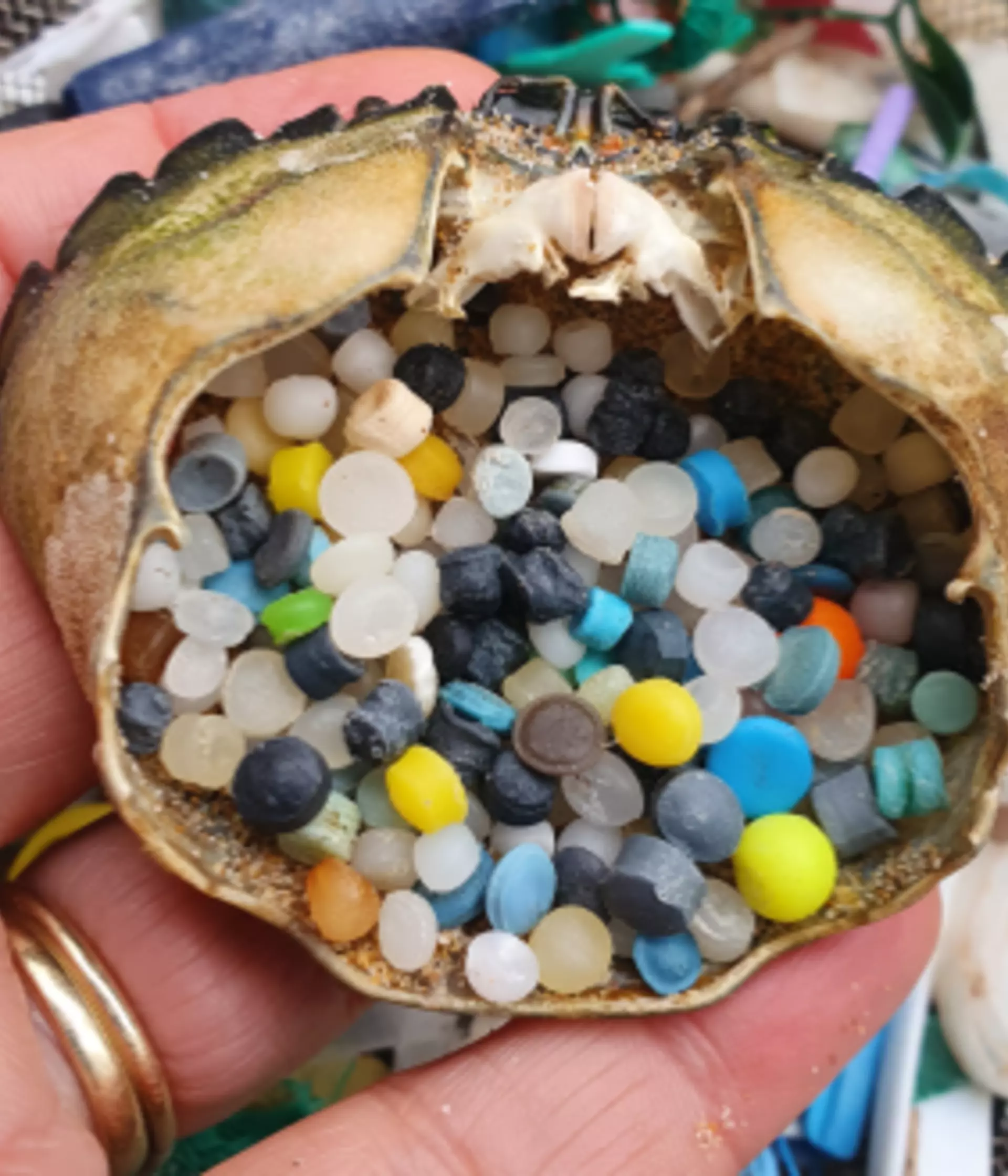This November saw the third meeting of world decision-makers working towards a global treaty tackling plastic pollution. Gurveena Ghataure, ZSL Country Manager for Kenya, shares her experiences of the International Negotiating Committee (INC) discussions in Nairobi.
My first time attending INC discussions around a Global Plastics Treaty, I approached the event with a mix of anticipation and curiosity. Tackling plastic pollution on a global level is a truly complex yet absolutely essential challenge, and I was unsure whether the experience would leave me feeling inspired or disheartened.
Around 14 million tonnes of plastic enter the ocean every year, negatively impacting over 900 animal species. From dolphins to corals, these animals suffer from the detrimental impacts including ingestion, entanglement, injury and mortality. Without intervention, plastic production rates are projected to triple by 2060 – threatening a future of more plastic in the ocean than fish as soon as 2050.
The INC meetings set out to prevent this possible future through creating a Global Plastics Treaty.
Known as INC-3 - the third of five INC meetings between global decision-makers to tackle this threat - the event and enlightening, shedding light on the multifaceted challenges posed by plastic pollution. Discussions ranged from the impact on marine environments to the broader implications for human health. It was heartening to witness and see a range of different organizations and communities come together to address these critical issues, emphasizing the urgency of finding sustainable solutions.
The discussions were not without their challenges, highlighting many of the roadblocks that we collectively need to find a way through in order to protect both the people and wildlife being negatively impacted by plastic pollution. Sessions to deliberate on the details of the text took a while to kick off, with several hang-ups on how best for the process to go forward. Additionally, lobbyists representing fossil fuel and chemical interests cast a shadow over the proceedings, presenting challenges to making meaningful progress and consensus on the much-needed Global Plastics Treaty.
Advocating for Biodiversity and Local Communities
ZSL's presence at the negotiations is marked by a commitment to ensuring that science-based solutions and clear goals are set, and that biodiversity and local communities are central in the Treaty and the fight against plastic pollution. Our vision aligns with the need for a comprehensive and holistic approach, recognizing the intricate relationship between plastic management and the well-being of ecosystems and communities.
While I was at the discussions to engage with member states on why it’s essential the Treaty prioritises these areas, it was heart warming to see how many other organisations attending were also advocating for the recognition of the entire lifecycle of plastics and safeguarding the rights of workers and local communities. Swathes of plastic pollution ends up in rivers or on beaches where nature meets marginalised communities, affecting both human health and environmental well-being. Ensuring that solutions to tackle plastic pollution are co-designed with the communities that need them most is essential to enable effective reduction of plastic pollution.
Plastic Pollution and Climate Change
Plastic pollution is just one crisis that the global community is currently facing. World leaders have just finished discussions in Dubai on how to tackle climate change, and it is important to recognise that these two issues are inherently interlinked. By 2040, up to 19% of global greenhouse gas emissions will stem from plastic production and waste management – in order to meet global carbon targets, we need a plastics treaty that effectively reduces plastic pollution, in order to simultaneously tackle the climate crisis.
One promising step in this direction was discussions around fishing gear being moved to the emissions section of the treaty, recognising the connection between the two including how drag from gear contributes to increased fuel consumption by fishing vessels. Hopefully over the coming discussions this will be expanded upon further, such as mandatory marking of gear, reporting of loss and recovery protocol – all steps to ensure accountability in tackling plastic pollution.
What progress is needed to tackle plastic pollution?
There are still two more INC meetings scheduled over the coming 12 months to further refine and agree on the terms of a Global Plastics Treaty. We will continue to engage in the negotiation process to advocate for the importance of ensuring biodiversity and local communities are at the centre of progress towards tackling plastic pollution.
There is plenty of opportunities within the draft documents for biodiversity to be included as a key component. For example, it’s essential that downstream plastic clean-ups are only considered as just one part of ecosystem restoration, and not a stand-alone solution. It’s also vital that the Treaty prioritises upstream solutions to reduce plastic pollution in order to reduce the threat of negative impacts on the environment, biodiversity or human health later in the plastic life cycle.
By ensuring a holistic approach is weaved into the fabric of the Treaty, this agreement will play a vital part in creating a better future for wildlife and people across the globe.
Climate change and human activity have pushed our precious planet to its limit, causing the devastating loss of so many habitats and species. From lab to field, hands on and behind the scenes, we’re leading the future of conservation.
